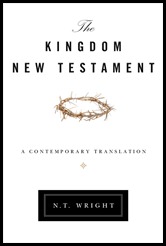
On September 22, 1862, President Abraham Lincoln signed the Emancipation Proclamation and freed all slaves living in America. He was the president, he said they were free, and that is that.
Well, it wasn’t really that easy. The Confederates were no longer acknowledging Lincoln as their president so his words weren’t worth much to them anymore. At least until the Union won the Civil War and asserted their power and laws.
So at the point of the Emancipation Proclamation were the slaves free or not?
You are only free to the degree people (including yourself) let you be free.
There were pockets of slave owners in Texas that got together and conspired to keep the word of the Emancipation Proclamation from their slaves. It wasn’t that hard to do. Many slaves could not read. The slave owners would also run abolitionists out of town or even in rare cases kill them lest they stir up the slaves into dissension. When rumors of freedom did get through to the slaves, all the slave owners had to do was tell them to look at their situation. How could these rumors be true? They don’t appear to be free, do they? In the end, in these pockets of Texas, even though slavery had been abolished, freedom was denied to the slaves for another two years.
♦
The Roman Christians were at a crossroads. Theologically they had to decide how free they would allow themselves to be. Their slave masters were not flesh and blood though. They had to decide how free from law and sin they would be.

Paul has been painting a picture of Law that is not pretty. There is within fallen humanity a propensity to sin (5:12-13), but until a command comes along declaring what we should and should not do the sinful desires inside of us do not know how to tempt us (3:20). Think of children: as soon as you say don’t do something, what do they want to do? The very thing prohibited. Likewise our sinful desires. The law was not intended to be a way to salvation, rather it showed us how depraved we truly are (5:20). To hang on to law as a way to get right with God is nonsensical. Law leads to sin which produces guilt and ultimately death (6:23), whether spiritual death or the metaphorical death of hope and love and goodness.

In this chapter, Paul sketches out an alternative. He tells the Roman Christians: “you have been freed from sin” (6:7, 18, 22). Sin is no longer their master, because they have been freed from an obligation to follow the Jewish Law. Law played its role and now it is time for another option: the cross and the grace that is freely offered there. As we identify ourselves with the death, burial and resurrection of Jesus through baptism (6:3-5) we choose a new cycle. The cross brings freedom which produces gratitude and ultimately life.

The wages paid by sin, you see, are death; but God’s free gift is the life of the age to come, in the Messiah, Jesus our Lord. (6:23)
Paul, though, leaves these two opposing options as exactly that: choices. The Roman Christians can choose to go the way of law or the way of the cross. He argues one will lead to death and one to life. They have been freed from sin by the power of the cross. Through Christ’s resurrection God showed this truly is His world and life and death, freedom and slavery truly are His to determine. But they still have to choose to not let sin have that power over them by going the way of grace through the cross, not the way of law and sin (6:12-14). They would only be as free in the Roman church as they allowed themselves to be.
Nobody is encouraging us to follow the Jewish Law these days, but we can still give our freedom away to a works-oriented religion. Again, this only leads to inevitable failure, overwhelming guilt, and the death of hope. But the cross still stands before us today offering grace and freedom, propelling us into a grateful and abundant life of service to God and others.
The choice is ours. How free will we allow ourselves to be?
What struck you in this chapter?





































Recent Comments